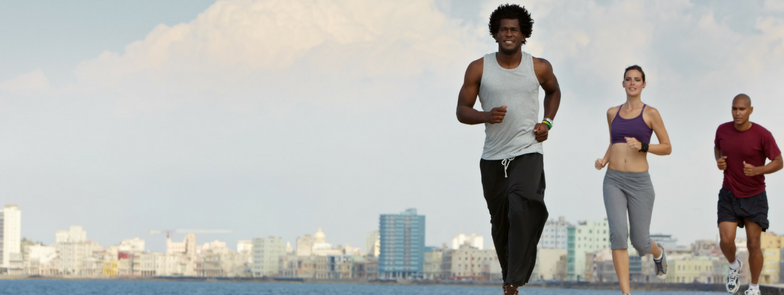
Nutrition is an important aspect in athletic performance. While formal recovery nutrition is likely unnecessary for the majority of recreational athletes, some considerations for post-exercise consumption include:
- Calorie Intake
- Protein Intake
- Meeting Nutrition Needs
In general post workout meals should be eaten within 2 hours of exercise and be a mixture of carbohydrates and protein to optimize muscle protein synthesis.1
Calorie Intake
When assessing calorie needs after a workout, its important to remember that one size does not fit all. Consider the time and intensity of the workout, the individual athletes goals, and overall meal plan. Calorie management is important for most recreational athletes, especially for those who may be exercising for weight loss. Often times individuals arent burning as many calories as they think, and exercise may increase appetite in some individuals.2
Protein Intake
Eating protein during exercise or the recovery period leads to increased whole body and muscle protein synthesis as well as improved nitrogen balance. Athletes should aim to consume high-quality protein providing about 10 g essential amino acids, or about .25-.3 g/kg body weight in protein, during the recovery period (0-2hrs).1 High-quality protein, such as that found in eggs, beef and dairy, can help athletes consume all of the essential amino acids.3
Meeting Nutrition Needs
There are some other important considerations for athletes. All athletes should ensure they are getting optimal hydration and drinking water and/or non-caloric fluids throughout the day to help prevent dehydration. Its also important for all individuals, not only athletes, to ensure they are following healthy eating patterns to help ensure they are meeting their needs for the nutrients of public health concern, like dietary fiber, potassium and choline. Iron, calcium and vitamin D are particularly important nutrients for female athletes. Following a healthy dietary pattern supplies all of these nutrients, so supplements are not always needed but can potentially help fill nutrition gaps. Athletes should also strive to eat foods rich in antioxidants, like fruits and vegetables.4
Information from this post was presented in an American College of Sports Medicine(ACSM) webinar and will be presented again this weekend at the ACSM Health and Fitness Summit.
Sources:
- Academy of Nutrition and Dietetics, Dietitians of Canada, and the American College of Sports Medicine Joint Position Statement. Nutrition and Athletic Performance. Medicine & Science in Sports & Exercise 2016;48:543-568.
- Maraki M, Tsofliou F, Pitsiladis YP, et al. Acute effects of a single exercise class on appetite, energy intake and mood. Is there a time of day effect? Appetite 2005;45:272-278.
- Campbell B et al. International society of sports nutrition position stand: protein and exercise. J Int Soc Sport Nutr. 2007;4:8
- Dietary Guidelines for Americans. https://health.gov/dietaryguidelines/
